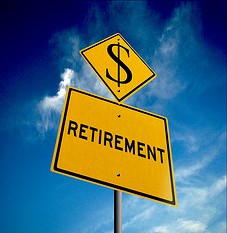Death and Taxes: Can We Afford Retirement Between Them?
The Pew Research Center reported this week that Americans—in particular, younger folks in their 30s—are now more worried than they were at the end of the Great Recession about having enough money for retirement.
Why can’t we look forward to the kind of retirement security that our parents and grandparents enjoyed? In the latest issue of Compensation & Benefits Review Dr. Sylvester J. Schieber, a private consultant and former Chair of the U.S. Social Security Advisory Board, asks this question and examines the background, the problem, and potential solutions in “Death and Taxes: Can We Afford Retirement Between Them?“:
In recent years, there has been a growing angst about the state over retirement security. What seemed a golden age of retirement 15 years ago has become increasingly costly and precarious, and there is limited understanding of the underlying causes for the changing environment. The discussion here explores the evolution of public policies and demographics that have driven the different experience of successive generations under both Social Security and employer-sponsored pensions. Social Security has become much more expensive and less efficient over time because it is financed on a pay-as-you-go basis. Employer-sponsored pension costs have exploded in recent years because we largely deferred the funding of the baby boom generation’s retirement benefits to the latter part of their working lives. This result was driven by a combination of policy appetites to keep income tax rates low and variations in financial market performance. The need to bring new policies to bear on our situation is delineated, and a description of potential policies to address current and future generations’ income security is provided.
Click here to continue reading the article.
Keep up with the latest research on salary and wage trends, labor markets, pay plans, incentive compensation, legal compliance, retirement programs, and health care benefits: sign up for e-alerts today from Compensation & Benefits Review.





























































































